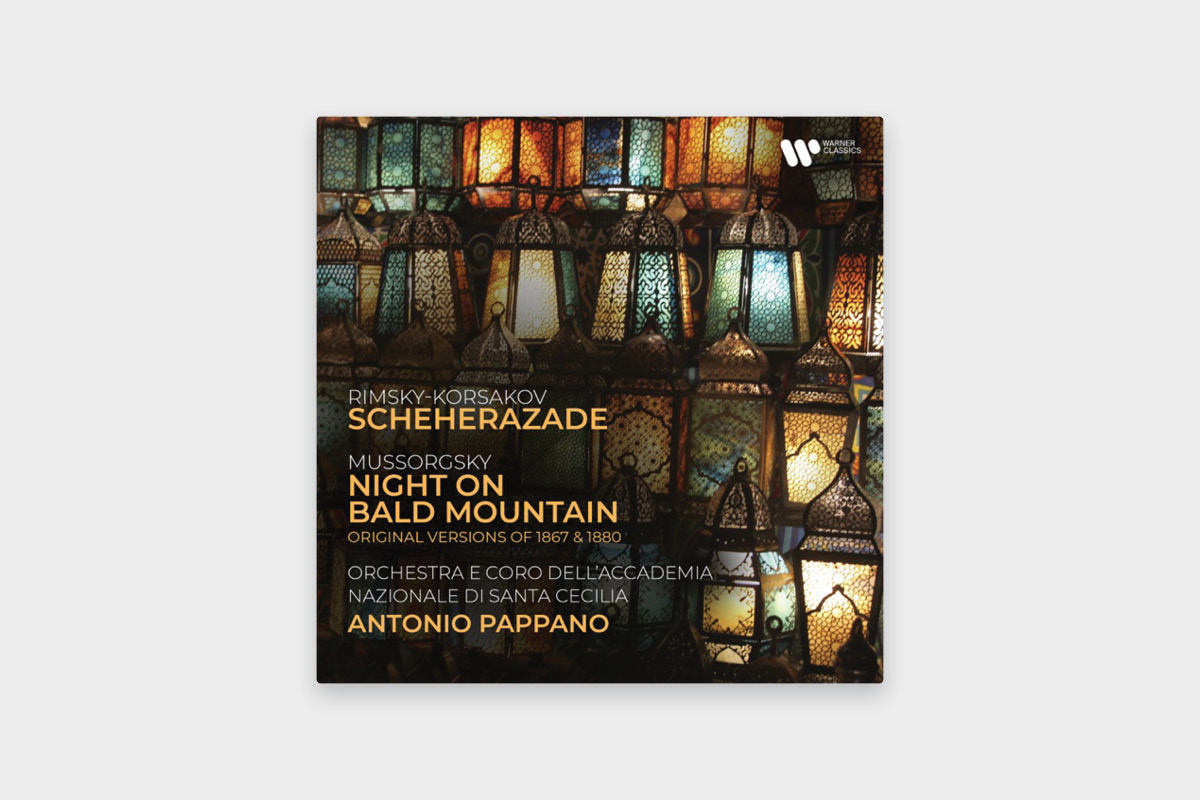This is a fascinating release, not only for the revelatory performances of versions of Mussorgsky’s Night on Bald Mountain but the virtuosity of the Orchestra and Chorus of the Academy of Santa Cecilia, Rome, who tackle these scores with such aplomb.

This release also showcases the links as well as the contrasts between the two composers featured – Modest Mussorgsky and Nicolai Rimsky-Korsakov (who completed both Mussorgsky’s opera Boris Godunov and Night on Bald Mountain as a labour of love to the memory of the gruff and feckless Mussorgsky after his premature death).
Rimsky-Korsakov’s version of Night on Bald Mountain remains by far the more popular, but it does not feature on this album. Instead, the program offers two different iterations of the work by Mussorgsky himself. The first, a purely orchestral version, was written in the 1860s. It took inspiration from a lost play, The Witch by Georgi Mengden, and portrayed a witches’ sabbath. Some years later, around 1880, Mussorgsky revised it, creating a work for orchestra, adult chorus, children’s chorus and a solo singer (on this recording the Bulgarian bass Dejan Vatchkov). It formed an episode in his opera The Fair at Sorochyntsi, based on a play by Nikolai Gogol in which Satan appears with his devilish hordes in the nocturnal hours of St John’s Day, around the time of the summer solstice.
Mussorgsky never completed The Fair at Sorochyntsi and this second version of Night on Bald Mountain was orchestrated by Vissarion Shebalin, who made an edition of the opera in 1930. These two versions sound almost like a different composition: their almost barbaric savagery transport us into another world from the relative sophistication of the “westernised” Rimsky-Korsakov version, which comes across as little more than an epigone. The rawness reminded me of Stravinsky’s Les Noces. Pappano’s forces unleash their inner barbarian so wonderfully that the experience is almost an assault on the senses. I wonder what the effect would be like on repeated listening.
Pappano’s Scheherazade is gorgeous with Carlo Maria Parazzoli’s violin solos making a sensuous, sinuous temptress out of the title character. The slight variation which occurs in the undulatory “wave” accompaniment of the first movement The Sea and Sinbad’s Ship reminding us that Rimsky-Korsakov was himself a naval officer! In The Kalendar Prince, where the “Prince is disguised as a mendicant (kalendar) monk, the capricious clarinet and bassoon solos are exquisitely virtuosic and the sudden dramatic turn with a the martial fanfares suggesting high adventure see the orchestral ensemble at its most alert. The clarinet is equally beautiful against the delicate percussion accompaniment in the third movement.
In the final movement, one senses the implacable sultan’s increasing impatience and Scheherazade’s panic as she redoubles her narrative efforts before the climax of Sinbad’s ship crashing against the rocks and the transfigurative happy ending.
Composers: Rimsky-Korsakov, Mussorgsky
Works: Scheherazade, Night on Bald Mountain
Performers: Orchestra dell’Accademia Nazionale di Santa Cecilia/Antonio Pappano
Label: Warner Classics











Comments
Log in to join the conversation.